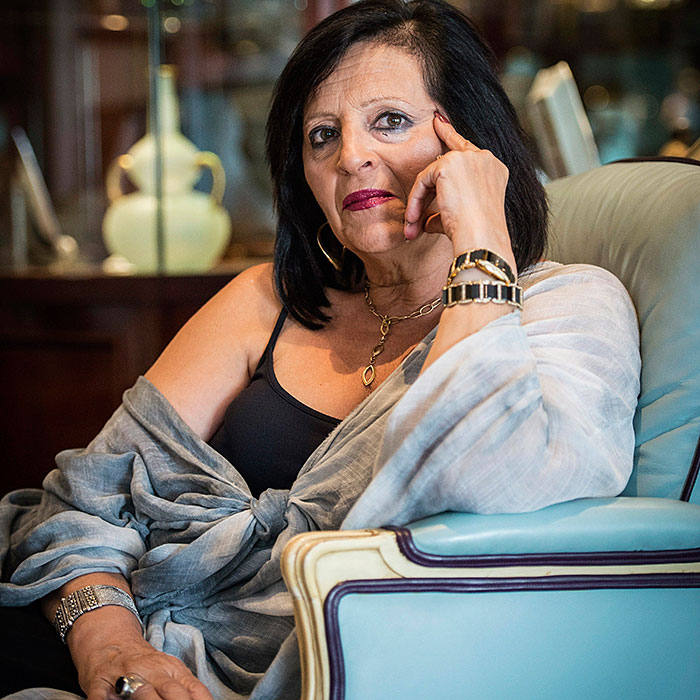Inheritance disputes from beyond the grave

Roula Khalaf, Editor of the FT, selects her favourite stories in this weekly newsletter.
The decision to exhume Salvador Dalí’s remains this year marked a new chapter in the lengths individuals will go to in establishing an inheritance claim. The exhumation was to determine whether Pilar Abel was his daughter and could therefore make a claim to be his legal heir. A DNA test on the Spanish surrealist’s remains disproved the claim.
“We are seeing more and more inheritance claims go to lengths further than ever before,” says Paula Myers, national head of the will, trust and estate disputes team at Irwin Mitchell Private Wealth. “The Salvador Dalí exhumation marks a 10-year struggle to establish a claim.”
If Abel had managed to prove she was the artist’s daughter she would have been entitled to 25 per cent of his estimated $1bn estate, Myers says.

In the UK, meanwhile, inheritance claims are increasing in frequency and complexity. According to the Royal Courts of Justice, claims issued under the Inheritance Act 1975 rose almost 40 per cent to 158 between January and December last year.
The increasing complexity of modern family structures means there is often a larger pool of potential claimants for estates, and a growing risk that some will feel left out or hard done by and bring claims. At the same time, intestacy laws often fail to reflect modern living arrangements, such as cohabiting unmarried partners or civil partnerships.
There have been developments in English case law concerning inheritance claims. In July, the judge in the Nahajec case allowed an estranged daughter to receive £30,000 from her father’s £240,000 estate, in the first case heard since the Supreme Court decision in Ilott v The Blue Cross in March this year. Ilott made it clear that even if an adult child were estranged from a parent, a claim is likely to succeed if the child is in clear financial need.
“While the exhumation of a body to establish a claim is unusual, long legal battles are not unheard of,” says Myers. “Whilst most cases are resolved quickly and at reasonable cost, it is impossible to predict the behaviour of an opponent and therefore some litigants find themselves engaged in a dispute for the long haul. If the case is contentious enough or if it involves a unique point of law, it can pass through several courts and take years to pass down a final judgment.”
It is important to have safeguards in place to ensure assets are protected and to minimise family feuds and ambiguity, says Liz Bottomley, managing director, private banking, at Arbuthnot Latham. She suggests adding a “letter of intent” with your will to explain the reasons why you have decided to bequeath your estate in the way you have and, where appropriate, why certain individuals have been excluded from benefit. While this is not legally binding, it will be taken into account should there be claims made on the estate.
George Bull, a senior tax partner at RSM, the accountancy firm, warns against making “silly mistakes”. “If you have assets in more than one jurisdiction, you will almost certainly need separate wills in those jurisdictions to deal with the assets there after your death,” he says. “Don’t undo all the good work by a simple error in your UK will. Uncertainty about how overseas assets are to be dealt with could leave your estate exposed to claims.”
One possible line of attack against your estate, says might include claims against the validity of your will, such as by family members who stand to inherit if your will is declared invalid.
Robin Lecoutre, an associate at Hunters solicitors, says claimants could say a person were of insufficient mental capacity when they made their will and did not understand the extent of their estate, or that they were coerced into making their will. “These types of claims are often heavily reliant on statements from witnesses who testify, after your death, that what they might have heard you say, or how you behaved in their presence at around the time you made your will, casts doubt on the validity of your will,” he says.
How, then, do you safeguard your assets from claims beyond the grave? Advisers suggest speaking to family members about plans for your estate. While this might be uncomfortable, it could prevent any nasty surprises after you have passed away.

“Nothing will cause as much strife as leaving unequal provision for children unless there is a very good reason, such as disability. Unequal treatment translates into ‘he/she loved them more than me’,” warns Dawn Goodman, a partner in the contentious trust and succession team at Withers, a law firm. “It is a powerful ingredient when mixed with grief and disappointment and can produce spectacularly damaging results. Planning is absolutely essential. A large dose of psychology is also highly desirable.”
There are options to ensure your assets go to chosen beneficiaries, such as using gift allowances to distribute some of your estate during your lifetime. Gifts of up to £3,000 a year in the UK do not incur inheritance tax and the nil-rate band allows you to gift up to £325,000 free of IHT as long as you live for seven years after making the gift.
“Trusts are also a useful tool for assets you would like to pass on after your death,” says Rachael Griffin, a tax and financial planning specialist at Old Mutual Wealth. “For trusts you can leave a letter of wishes, which can explain your wishes on how the assets should be divided on death. However, this is not legally binding.”
It might also be helpful to use an independent or professional trustee to ensure your wishes are considered, she says, thus removing potential emotional complications if you decided to favour one child over another.
Comments